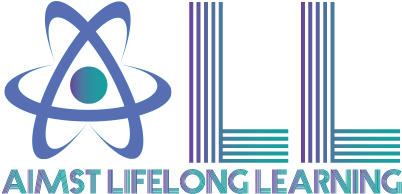
This Certification Programme in the Internet of Things (IoT) provides a comprehensive overview of the rapidly growing market for IoT devices and technologies. The course typically covers the fundamentals of IoT, including the various technologies used to create these devices, such as sensors, microcontrollers, and communication protocols. It also delves into how these devices communicate with each other and with centralized systems, often through wireless networks and the Internet. Additionally, the course explores data storage solutions for managing the vast amounts of data generated by IoT devices, as well as the distributed systems and architectures that support IoT applications. This certification aims to equip learners with the skills needed to design, implement, and manage IoT solutions in various industries.
| Module 1 | Introduction to IoT |
| Module 2 | IoT, W2N, M2M and CPS |
| Module 3 | Network & Communication aspects in IoT |
| Module 4 | Sensor & Actuator |
| Module 5 | IoT Platforms Design Methodologies (Arduino) |
| Module 6 | IoT Platforms Design Methodologies (Programming with Arduino IDE) |
| Module 7 | Developing sensor based application through embedded system platform |
| Name | Dr. Masyitah binti Abu |
| Qualifications | Bachelor Degree Electronic Engineering(Computer) Master of Science(Embedded System Desing Engineering) PhD(Computer Engineering) |
| Department | Faculty of Engineering and Computer Technology |
A Certification Programme in Internet of Things (IoT) equips students with the knowledge
and skills to design, develop, and manage IoT systems. The IoT field involves connecting
physical devices to the internet, enabling them to collect and exchange data. Here are some
potential career opportunities for students with this certificate:/p>
IoT Developer
- Design and implement IoT solutions, including developing software and firmware for connected devices.
IoT Solutions Architect
- Design and oversee the implementation of comprehensive IoT systems, integrating hardware, software, and network components.
IoT Systems Engineer
- Work on the technical aspects of IoT systems, including device connectivity, data integration, and system optimization.
Embedded Systems Engineer
- Develop and program embedded systems that form the core of IoT devices, ensuring efficient and reliable operation.
IoT Data Analyst
- Analyze data collected from IoT devices to derive insights, optimize performance, and support decision-making.
IoT Product Manager
- Oversee the development and launch of IoT products, managing cross-functional teams and aligning projects with business objectives.
IoT Security Specialist
- Focus on securing IoT devices and systems, addressing vulnerabilities, and implementing security protocols to protect data.
IoT Network Engineer
- Design and manage the networks that connect IoT devices, ensuring reliable communication and data transfer.
IoT Consultant
- Provide expert advice to organizations on implementing and optimizing IoT solutions, helping them leverage IoT technologies for business benefits.
Smart Home/Building Automation Specialist
- Develop and implement IoT solutions for smart homes and buildings, including automation systems, energy management, and security.
IoT Researcher
- Conduct research on emerging IoT technologies and innovations, contributing to advancements in the field.
IoT Test Engineer
- Test and validate IoT systems and devices, ensuring they meet performance, reliability, and security standards.
IoT Field Service Technician
- Install, maintain, and troubleshoot IoT devices and systems in various settings, such as industrial facilities and smart cities.
IoT Project Manager
- Manage IoT projects from inception to deployment, coordinating resources, timelines, and stakeholders.
Industrial IoT (IIoT) Specialist
- Focus on applying IoT technologies in industrial settings, optimizing processes, and improving efficiency in manufacturing and logistics.
Wearable Technology Developer
- Develop IoT-enabled wearable devices, such as fitness trackers and smartwatches, that collect and transmit data.
Healthcare IoT Specialist
- Implement IoT solutions in healthcare, such as remote patient monitoring and smart medical devices.
Agriculture IoT Specialist
- Develop IoT applications for agriculture, including precision farming, livestock monitoring, and automated irrigation systems.
Automotive IoT Engineer
- Work on IoT technologies in the automotive industry, such as connected cars, telematics, and autonomous driving systems.
IoT Business Development Manager
- Identify and develop new business opportunities related to IoT technologies, products, and services.
